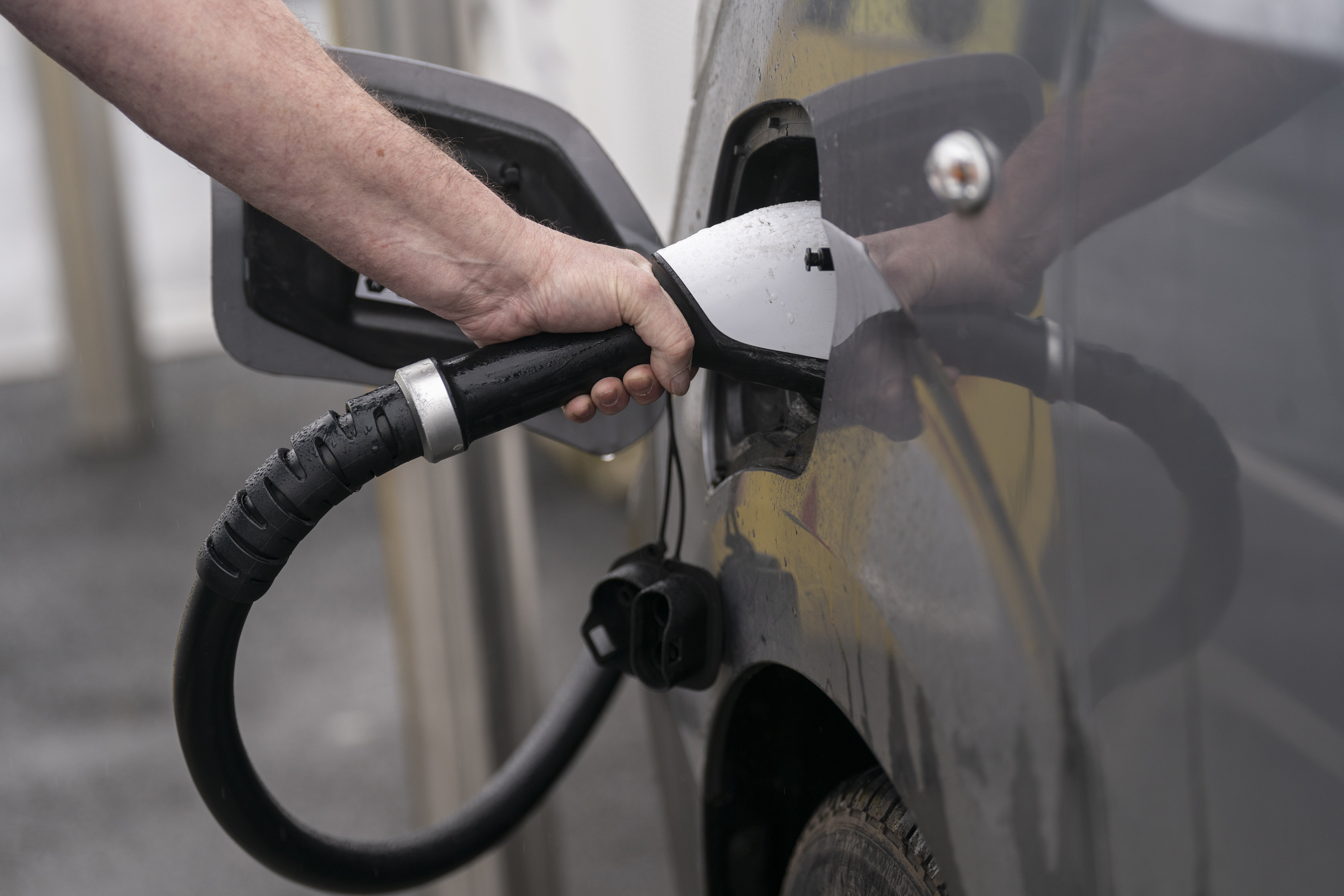Car tax rule changes could “undermine consumer confidence” in electric vehicles (EVs) – despite them remaining cheaper to own than petrol models, according to new research.
Think tank the Energy and Climate Intelligence Unit (ECIU) said owners of the top 10 best-selling EVs will benefit from average annual savings of nearly £1,200 over the vehicle’s lifetime, mostly because running a car on electricity is generally cheaper than paying for petrol.
The analysis includes purchase and running costs.
The Treasury will remove EVs’ exemption from vehicle excise duty (VED) – known as car tax – from Tuesday.
That means all EV owners will be charged at least the standard rate, which will be £195 for the second year onward after a vehicle is registered.
New EVs worth more than £40,000 will also incur the expensive car supplement, which will be £425 annually from years two to six after a car is registered.

But the VED changes – announced in November 2022 under the Conservative government but being implemented by the Labour Government – will also see rates increasing for petrol cars, with owners of the largest and most polluting vehicles seeing a doubling of the amount they will have to pay in the first year.
Under the zero emission vehicles (Zev) mandate, a minimum proportion of new cars and vans sold by each manufacturer must be zero emission, which generally means pure electric.
Major changes to vehicle excise duty (VED) will be introduced this week. Here are ten questions answered:
What is VED?
VED, often referred to as car tax, is a tax on the ownership of a vehicle.
How much is it?
Rates vary depending on the age of a vehicle and its CO2 emissions.
Can you give me some examples?
A new Volkswagen Golf R petrol model has a first year rate of £220, with subsequent years costing £190 annually.
Zero and low-emission vehicles such as electric cars are exempt.
What is happening?
The exemption for zero and low-emission vehicles will end.
When?
The overhaul comes into force on Tuesday.
Why?
The policy was announced by then-chancellor Jeremy Hunt under the Conservative government in November 2022.
At the time, he said he wanted to “make our motoring tax system fairer”.
What impact will this have?
EV owners will be charged VED of £10 for the first year after a vehicle is registered, and then the standard rate of £195 for every subsequent year of ownership.
What is the expensive car supplement?
Also known as the luxury car tax, this affects vehicles with a list price in excess of £40,000.
This involves paying an annual supplement on top of the standard rate for years two to six after a vehicle is first registered.
From Tuesday the amount will be £425.
Why is this an issue for EVs?
New EVs registered from Tuesday will be liable for the expensive car supplement.
What are the concerns about this in relation to the switch to electric motoring?
EVs tend to cost more than their equivalent petrol and diesel cars, so they are more likely to be affected by the expensive car supplement.
There are fears this will put some people off from going electric.









